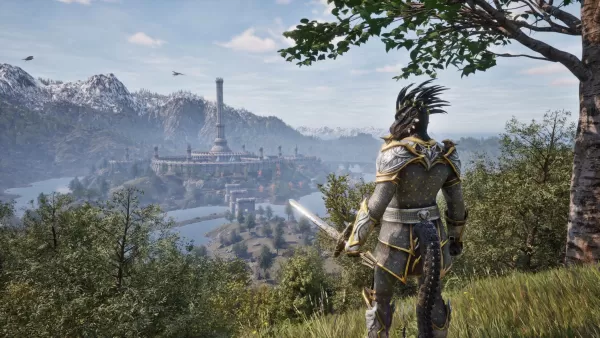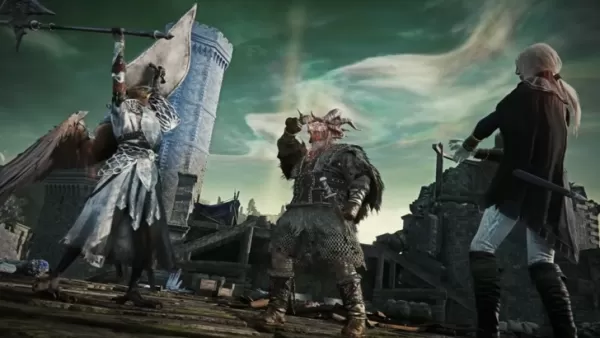By Azura, by Azura, by Azura – the rumors were true. Yesterday, Bethesda ignited the internet with the long-awaited reveal of Virtuos' remaster (or is it a remake?) of The Elder Scrolls IV: Oblivion. An 'Elder Scrolls Direct' event climaxed with a surprise shadow-drop, instantly attracting hundreds of thousands of concurrent players. This global celebration feels like a much-needed beacon of hope amid the recent challenges Bethesda Game Studios has faced. From years-long damage control following Fallout 76's rocky launch to the lukewarm reception of Starfield, Bethesda's latest efforts have left fans wondering: Has the studio lost its magic touch? With fierce competition from RPGs like Larian Studios' Baldur's Gate 3 and Obsidian's The Outer Worlds, which have been celebrated as spiritual successors to Elder Scrolls and Fallout, Bethesda's future titles like Elder Scrolls 6 and Fallout 5 seem distant. Yet, this re-release of Oblivion might be the first step towards reclaiming their former glory, though not in the way one might expect.
At its zenith, Bethesda Game Studios dominated the RPG genre. In 2020, leaked Microsoft FTC documents revealed that Fallout 4 had sold 25 million units to date, with over 5 million units sold in its first week alone, according to VGChartz. In 2023, Todd Howard announced that Skyrim had surpassed 60 million sales, bolstered by its numerous re-releases. However, Starfield's sales, estimated at just over three million units a year and a half after launch, have been a disappointment, especially considering its absence on PlayStation and the boost from Game Pass subscribers. Even Starfield's dedicated fanbase has expressed dissatisfaction with its first expansion, Shattered Space.
This situation presents a significant challenge for Bethesda. With Elder Scrolls 6 still "years away" and Fallout 5 a mere whisper, how can this once-iconic RPG developer rekindle the enchantment for its fanbase? The answer might lie in revisiting its past.
Rumors of the Elder Scrolls IV: Oblivion remaster began in September 2023, sparked by leaked Microsoft documents that hinted at unannounced Bethesda titles, including a remaster of the 2006 classic. Silence reigned until January 2025, when a former Virtuos employee revealed more details, sparking debates among Elder Scrolls fans about their authenticity. Last week, the dam finally burst, igniting the internet with over 6.4 million Google searches for 'The Elder Scrolls IV: Oblivion,' a 713% increase in the last week alone. At its peak, Bethesda's reveal livestream attracted over half a million viewers. Despite the leaks, over 600,000 tuned in to see a 19-year-old game reintroduced. The overwhelming demand for the remaster led to crashes on discount game key websites like CDKeys, and slowed down Fanatical and Green Man Gaming. As of yesterday, Steam's concurrent players for Oblivion stood at 125,000, making it the #1 best seller. The fervor of Bethesda fans for Oblivion burns as brightly as the flames that spill from the Oblivion gates themselves.
The answer to re-engaging the fanbase might lie in revisiting its past. The message from players is clear: if you (re)build it, they will come. What better way to keep fans engaged during long development periods than by inviting them back to the mystical lands of Morrowind or the post-apocalyptic landscapes of the East Coast? From a commercial standpoint, this strategy makes sense. While Bethesda's main team works on new projects, trusted partners like Virtuos can use existing blueprints to create remasters more quickly. These remasters tap into built-in audiences and introduce new generations to the enchanting worlds of Tamriel or the fallout-ravaged cities of Las Vegas and D.C.
Bethesda has successfully uplifted its catalogue before. During the first season of the Fallout TV show on Prime Video, Fallout 4 was discounted by up to 75%, accompanied by a next-gen update that included homages to the show. As a result, Fallout 4 sales surged over 7,500% in Europe alone, despite being nearly a decade old.

Looking back at Microsoft's leaked Bethesda roadmap, a Fallout 3 remaster was listed to follow Oblivion two years later. Although the original timelines have shifted – Oblivion was initially set for fiscal year 2022 – if the gaps remain consistent, a Fallout 3 remake could be expected in 2026, coinciding with the second season of the Fallout TV show. Given the show's first season's alignment with Fallout 4's aesthetic, could Bethesda be planning a surprise New Vegas remake to coincide with the second season's focus on New Vegas? The shadow-drop of Oblivion suggests that a New Vegas Remastered trailer could be waiting at the end of Fallout Season 2's finale.
The message from players is clear: if you (re)build it, they will come. However, if there's one game in Bethesda's back catalogue that truly deserves a remake, it's The Elder Scrolls III: Morrowind. Fans have been clamoring for this for years, with some even remaking it using Skyrim's tools, like the Skyblivion project. Yet, Morrowind poses unique challenges. It stands at the crossroads of Bethesda's evolution, with its partially voiced narrative, text-based storytelling, lack of quest markers, and simplistic combat physics. While Virtuos managed to update some of Oblivion's systems, Morrowind's core is its intricate, challenging mechanics. Remaking Morrowind is a delicate balancing act; modernize it too much and you risk losing its original charm, but retain too many outdated features and it might feel overwhelming to new players.
When a studio becomes synonymous with a gaming genre, the challenge is to innovate while retaining its audience. Rockstar Games has kept Grand Theft Auto fans engaged through the expansive world of GTA Online, which funds the rumored high budget of GTA 6. Bethesda's strength lies in its richly detailed, single-player worlds, unlike the less impactful Elder Scrolls Online and Fallout 76. The overwhelming response to Virtuos' Oblivion remaster shows that gamers are eager to revisit Bethesda's past. While not every remaster guarantees success – as seen with Rockstar's GTA Definitive Editions – what better way for Bethesda to regain its footing in the modern RPG landscape than by revitalizing its classic titles?







